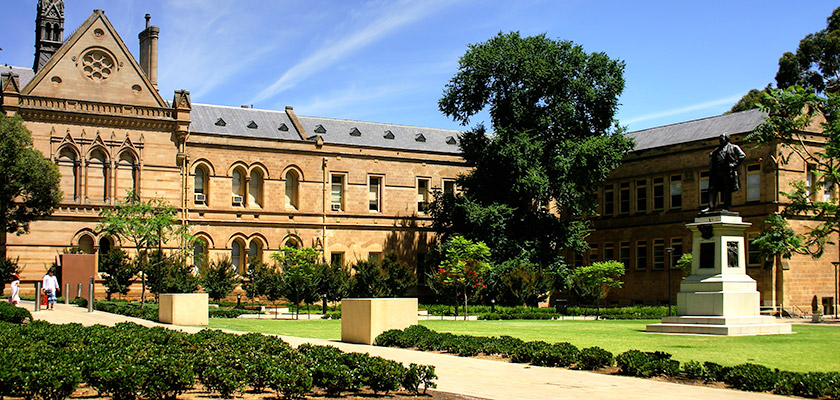Coursework
An undergraduate degree in law may vary between countries, which is why it’s important to specialise in a law degree that is most applicable in the country you want to practice in. In that respect, most law degrees offer Common Law, which is the basis of most legal systems in different countries.
Your degree’s course structure may include different delivery methods: including lectures, seminars, practical mock court sessions. Then finally, you may have the opportunity to earn a placement in a law firm, hence kickstarting your career in the legal field.
Some typical modules within a law degree may include:
- Civil procedure – the process of adjudicating civil lawsuits, i.e. jurisdiction, motions and pleadings, the structure of a lawsuit, etc.
- Constitutional law – the legislative powers of different entities within a state, i.e. the executive, the parliament or legislature, and the judiciary; as well as the basic rights of citizens.
- Contracts – a practice of making and enforcing rules and promises for determining consequences in the case of nonperformance.
- Criminal law and criminal procedure – rules and policies for enforcing regulations against individuals accused of committing crime, and the rights guaranteed to those charged with criminal violations.
- Legal method – Introduction to a legal system and its procedures.
- Legal writing – research and write memoranda dealing with a variety of legal issues.
- Property law – concepts dealing with the treatment of land, buildings, natural resources, and personal objects
- Torts – private wrongs, i.e. assault, negligence, defamation, etc.

Specialisations
Even though law degrees will include the common modules as mentioned above, most law degrees will require you to choose a specialisation during the end of your degree. This decision will then pull you towards a specific sector in the legal field for your future career.
Common specialisations include:
- Criminal Law
- Civil Rights
- Corporate Law
- Tax Law
- Health Law
- Environmental Law
Your law degree may require you to write a dissertation, this will give you a chance to develop your research skills and explore the different areas of law thoroughly.

Accreditation and Certification
The accreditation of your degree depends on where you choose to study, as different countries have their own legal systems. In the case of Australia, you can expect to be awarded a Bachelor of Laws upon completion. Which is why it’s very important to choose a law degree applicable to the country you wish to practice in.
If you want to become a solicitor or barrister after your degree, you can do so by passing a bar exam.
Why study Law?
It’s a common conception that people who study law will end up as solicitors or barristers, but it can lead to many exciting opportunities, as law degrees are actually applicable to all sorts of industries. Lawyers are highly coveted as they are responsible for representing their clients in civil and criminal trials. You can choose to specialise in bankruptcy, elser, probate law, and more to hone your expertise. You may even intersect your legal knowledge into working for business management, banking and finance, politics and government.
Other than practising law, lawyers can find jobs in other areas such as:
- Academician
- Advocates & Solicitors
- Attorney-General’s Chambers
- Arbitrator
- Company Secretary
- Corporate Counsel
- Forensic Investigator
- Judiciary
- Lecturer
- Legal Secretary
- Legal Writer & Editor

Steps to becoming a Lawyer in Australia
Similar to Malaysia, students need to complete the following four steps to practice as a solicitor in Australia,
- Completion of an approved law degree (LLB or JD)
- Completion of an approved Practical Legal Training (PLT) course to obtain the Graduate Diploma in Legal Practice or completion of a supervised traineeship at a firm
- Application for admission to the Roll of Lawyers
- Application for a practising certificate
*Please note international students wishing to work in Australia as a lawyer are required to satisfy the ‘2 years study requirement in Australia’ and apply for Temporary Graduate visa (subclass 485) upon completion of their study.
Recommended Australian Universities to Study Law:
And finally, we will recommend some universities to study law in Australia. This list is based on the QS World Ranking for each university’s Bachelor and Master program in Law. They are guaranteed to be credible, as they rank their subjects based on:
- High enrolment rate in the program
- High courses satisfaction rates among students and recent graduates
- High employment rate
Without further ado, here all all the undergraduate and postgraduate law degrees.
1. The University of Melbourne

As always, the prestigious University of Melbourne with worldwide recognition has their law programmes ranked at #6 in the QS World Rankings.
Undergraduate:
| Programme Name | Majors | Indicative fee (2020) |
| Bachelor of Arts | Criminology | AUD $35,552 – $40,536 |
| Law and Justice |
| Programme Name | Indicative fee (2020) |
| Juris Doctor | AUD $41,008 |
| Master of Banking and Finance Law | AUD $42,688 |
| Master of Commerce Law | AUD $42,688 |
| Master of Construction Law | AUD $42,688 |
| Master of Employability and Labour Relations Law | AUD $42,688 |
| Master of Energy and Resources Law | AUD $42,688 |
| Master of Environmental Law | AUD $42,688 |
| Master of Global Competition and Consumer Law | AUD $42,688 |
| Master of Health and Medical Law | AUD $42,688 |
| Master of Human Rights Law | AUD $42,688 |
| Master of Intellectual Property Law | AUD $42,688 |
| Master of International Tax | AUD $42,688 |
| Master of Laws (Global Competition and Consumer Law) | AUD $44,416 |
| Master of Laws | AUD $42,688 |
| Master of Philosophy (Law) | AUD $41,632 |
| Master of Private Law | AUD $42,688 |
| Master of Public and International Law | AUD $42,688 |
| Master of Tax | AUD $42,688 |
2. University of New South Wales (UNSW)

UNSW has their law programmes ranked at a reputable #14 position. Do keep in mind that their bachelor of law programmes are only offered in double degrees.
Undergraduate:
| Programme Name | Indicative fee (2020) |
| Bachelor of Actuarial Science/Law | AUD $44,340 |
| Bachelor of Advanced Science (Honours)/Law | AUD $45,660 |
| Bachelor of Arts and Business/Law | AUD $39,660 |
| Bachelor of Arts/Law | AUD $37,920 |
| Bachelor of City Planning (Honours)/Law | AUD $39,840 |
| Bachelor of Commerce/Law | AUD $43,680 |
| Bachelor of Criminology and Criminal Justice/Law | AUD $40,080 |
| Bachelor of Economics/Law | AUD $43,680 |
| Bachelor of Engineering (Honours)/Law | AUD $45,720 |
| Bachelor of Fine Arts/Law | AUD $38,460 |
| Bachelor of International Studies/Law | AUD $38,340 |
| Bachelor of Media (Comms & Journalism)/Law | AUD $37,920 |
| Bachelor of Media (PR & Advertising)/Law | AUD $37,920 |
| Bachelor of Media (Screen and Sound Production)/Law | AUD $37,920 |
| Bachelor of Medicinal Chemistry (Honours)/Law | AUD $45,660 |
| Bachelor of Music/Law | AUD $40,920 |
| Bachelor of Politics, Philosophy and Economics/Law | AUD $39,960 |
| Bachelor of Psychological Science/Law | AUD $45,240 |
| Bachelor of Psychology (Honours)/Law | AUD $45,240 |
| Bachelor of Science (Advanced Mathematics) (Honours)/Law | AUD $45,660 |
| Bachelor of Science (Computer Science)/Law | AUD $45,660 |
| Bachelor of Science and Business/Law | AUD $44,760 |
| Bachelor of Science/Law | AUD $45,660 |
| Bachelor of Social Research and Policy/Law | AUD $37,920 |
| Bachelor of Social Work (Honours)/Law | AUD $39,210 |
| Bachelor of Criminology & Criminal Justice | AUD $35,760 |
| Programme Name | Indicative fee (2020) |
| Juris Doctor | AUD $49,440 |
| Master of Laws | AUD $45,840 |
| Master of Public Policy and Governance | AUD $35,280 |
3. Monash University

With several campuses around the world, Monash is another prestigious university which carries their law programmes at rank #36 in the world.
Undergraduate:
| Programme Name | Indicative fee (2020) |
| Bachelor of Laws | AUD $42,000 |
| Bachelor of Criminology | AUD $45,660 |
| Programme Name | Indicative fee (2020) |
| Master of Business Law | AUD $45,500 |
| Juris Doctor | AUD $43,900 |
| Master of Laws | AUD $44,500 |
| Master of Legal Studies | AUD $44,500 |
4. University of Adelaide

The University of Adelaide isa rising star within Australian university ranks. Securing a position in the top 100 in the QS World Rankings for their law degrees, this university is truly a force to be reckoned with.
Undergraduate:
| Programme Name | Indicative fee (2020) |
| Bachelor of Laws | AUD $41,000 |
| Bachelor of Criminology | AUD $33,500 |
| Programme Name | Indicative fee (2020) |
| Master of Business Law | AUD $42,500 |
| Master of Laws | AUD $42,500 |
| Master of Comparative Laws | AUD $42,500 |
5. Macquarie University

Macquarie University is a strong believer in breaking traditions and taking innovative steps towards progress. And this applies to their law degrees too!
Undergraduate:
| Programme Name | Indicative fee (2020) |
| Bachelor of Laws | AUD $38,800 |
| Bachelor of Arts with a Criminology Major | AUD $33,000 |
| Programme Name | Indicative fee (2020) |
| Juris Doctor | AUD $39,000 |
| Master of Laws | AUD $37,500 |
| Master of International Trade and Commerce Law | AUD $37,500 |
Hopefully this helps put things into perspective! But if you have anymore question, please don’t hesitate to contact us.
International Student enquiries:
Phone: +60182414802
Email: [email protected]

For more stories like this, join the Excel Education community on Facebook
Need help with your uni application? Connect with us here
About Post Author

Jude Chong
A content writer & a student of University of Nottingham studying Bachelor of Communications. I like indie bands and meeting new people 🙂
